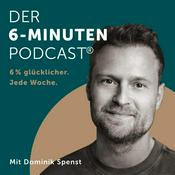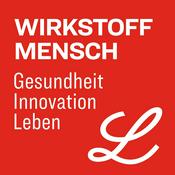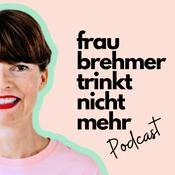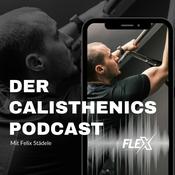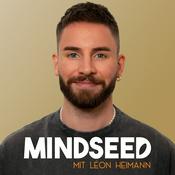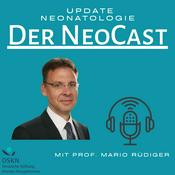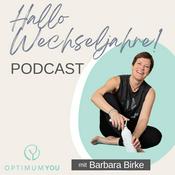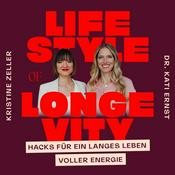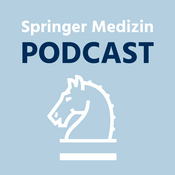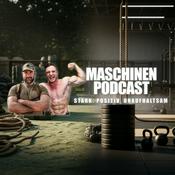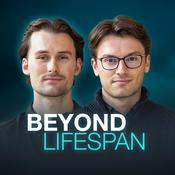191 Episoden

Inside the Dramatic Race to Decode the Human Genome
25.12.2025 | 49 Min.
Twenty-five years ago, President Bill Clinton stood before a podium in the East Room of the White House, and, in front of an all-star lineup of researchers and dignitaries, made a historic announcement: After years of painstaking work, scientists had created “the most important, most wondrous map ever produced by humankind” — the first-ever survey of the human genome.In his remarks, Clinton compared the achievement to the maps created by Lewis and Clark’s expedition into the American West — but maybe a comparison to the space race would have been more accurate. Because, behind the scenes, the journey leading up to that day’s announcement had been defined by nerve-wracking, cut-throat competition — a competition where every minute counted, and the future of scientific inquiry was at stake.On this encore episode, we look back at how what started as a scientific collaboration fractured into a bitter race to finish decoding the human genome. On one side was the federally funded Human Genome Project; on the other, a private start-up called Celera; and, in between, a raucous mashup of conflicting personalities, values, and ideas that would eventually help to transform science and medicine.

When Should Patients Decide for Themselves?
18.12.2025 | 49 Min.
As patients, we often wonder what our role should be when it comes to getting better. Should we research options, get second opinions, and ask lots of questions? Or should we sit back, and let the health care professionals take charge? When does it make sense to push, and when is it best to do less?On this episode, we examine our role as patients, the choices we make, and charting our path toward better health. A reporter gets a wake-up call while looking into diabetes rates among Latinos in Oklahoma, we hear about one woman’s choice to forgo cancer treatment — and how her family and doctors responded, and we explore a controversial proposed diagnosis for severe, long-term anorexia. SHOW NOTES: First Juliet Wayne's brother died from cancer — then her long-term partner broke up with her. That was followed by a deep depression; and then, the nightmares started. We talk with Wayne about how these nightmares affected her life, why doctors said she couldn't take a drug designed to stop them, and how a chance encounter finally led her to relief. Historian Joy Lisi Rankin talks about her mother’s choice not to pursue treatment for breast cancer — and how Rankin’s own experience years later with breast cancer treatment changed how she felt about her mother’s choices. You can read Rankin’s essay about her mother at Stat News. Anorexia has one of, if not the, highest mortality rates of any mental illness, with a relatively low recovery rate. Patients and their families suffer deeply from this illness, which can last for decades. In 2022, a paper proposed a new and controversial diagnosis: terminal anorexia. Reporter Elizabeth Zwerling tells the story of how this diagnosis came to be proposed, and the difficult conversations it kicked off in the world of eating disorder treatment.

Searching for the Truth — and Finding Unexpected Answers
11.12.2025 | 49 Min.
In 1973, Stanford psychologist David Rosenhan published a bombshell paper called “On Being Sane in Insane Places.” In the paper, Rosenhan described faking symptoms to be admitted to a psychiatric hospital, and recruiting several other pseudo patients to do the same. Could staff tell they were faking? What was it like to be a patient in an institution? The “Rosenhan experiment,” as it came to be known, created a major stir, sparking public debates over the validity of psychiatric diagnoses and contributing to a shift away from institutionalization. Decades later, when journalist Susannah Cahalan began looking into the experiment, she made a startling discovery about Rosenhan’s famous research; he had made up most of it.On this episode, we explore what happens when long-held narratives are upended. For the first time, we hear the voices of the pseudo patients who participated in the famous study, and find out why Cahalan was so passionate about finding them. We’ll also hear a story about one woman’s decades-long search to investigate the Oklahoma City bombing that killed her two grandsons.SHOW NOTES: The reason Susannah Cahalan was so interested in the Rosenhan experiment was personal — she had her own brush with the mental health system. Check out this week’s edition of KQED's Snap Judgment, where she tells that story. It starts with Cahalan waking up in a hospital room, and having no idea why she’s there. Kathy Sanders’ grandsons, Chase, 3, and Colton, 2, were killed in the Oklahoma City bombing on April 19, 1995. Sanders felt numb with grief and sadness — but soon, another emotion crept in: doubt. She felt that the federal investigation was dropping leads, and not pursuing important clues. Reporter Grant Hill talks with Sanders about what she found in her own investigation, and why, 30 years later, she’s still looking for the truth.

Inside the Hidden Wonders of the Shrinking Arctic
04.12.2025 | 50 Min.
Over the course of 20 years, writer Neil Shea explored the awe-inspiring landscape of the Arctic. He saw narwhals poking their tusks above the water, herds of caribou moving across the tundra, and majestic white wolves raising their young. He documents this fragile beauty in his new book, “Frostlines.” We talk to Shea about his adventures, and how climate change is transforming the region.

Why Nurturing Connection is Good for Your Health
27.11.2025 | 49 Min.
So often, our relationships take a backseat to everything else on our to-do lists — but new research shows that nurturing personal connections plays a central role in our health and well-being. On this episode, we explore the science of connection, from why it’s important, to how we can make it a priority in our lives.
Weitere Gesundheit und Fitness Podcasts
Trending Gesundheit und Fitness Podcasts
Über The Pulse
Höre The Pulse, happy, holy & confident® Dein Podcast fürs Herz und den Verstand und viele andere Podcasts aus aller Welt mit der radio.at-App
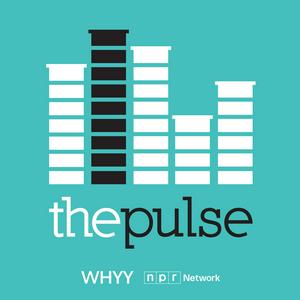
Hol dir die kostenlose radio.at App
- Sender und Podcasts favorisieren
- Streamen via Wifi oder Bluetooth
- Unterstützt Carplay & Android Auto
- viele weitere App Funktionen
Hol dir die kostenlose radio.at App
- Sender und Podcasts favorisieren
- Streamen via Wifi oder Bluetooth
- Unterstützt Carplay & Android Auto
- viele weitere App Funktionen


The Pulse
App laden,
loshören.


